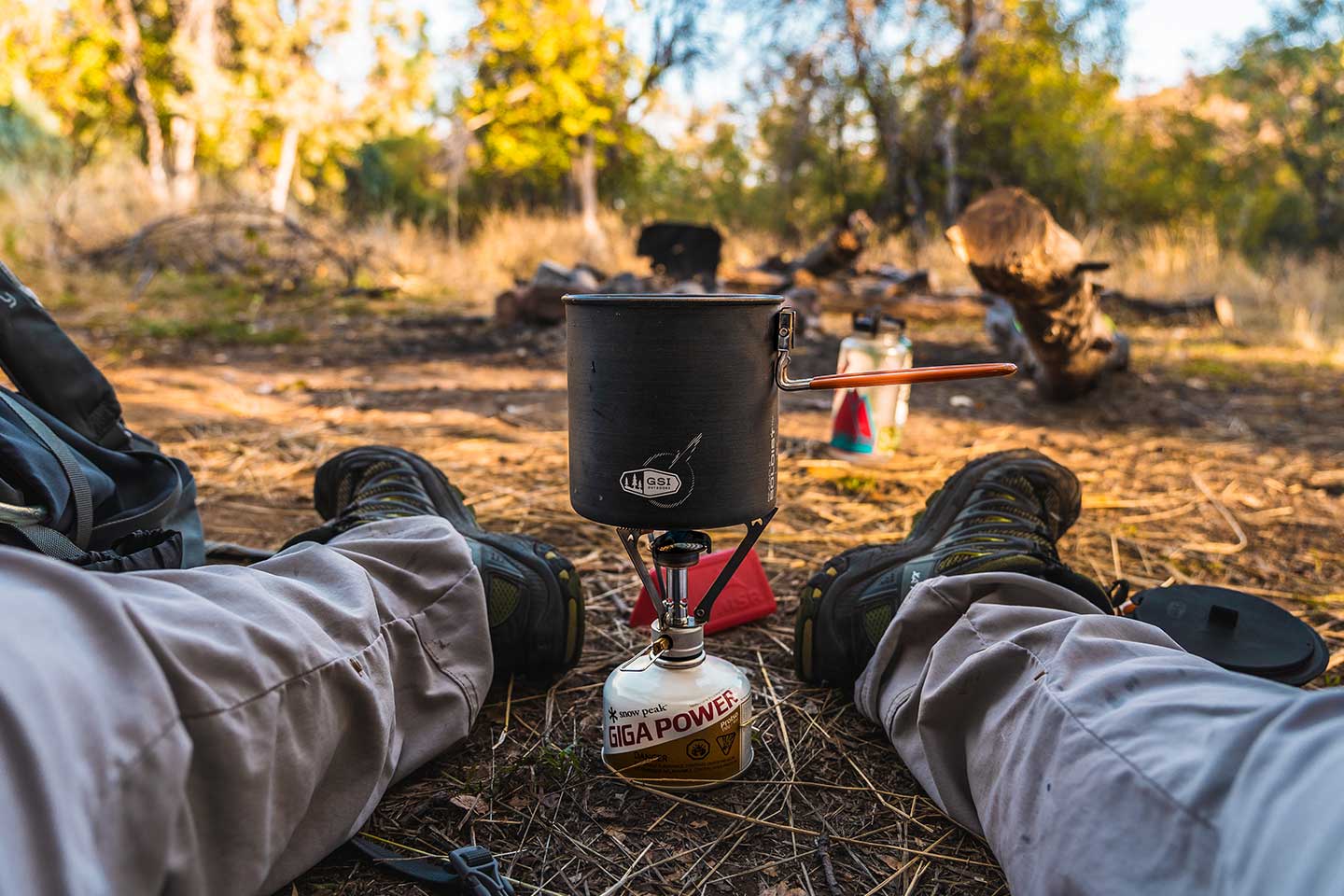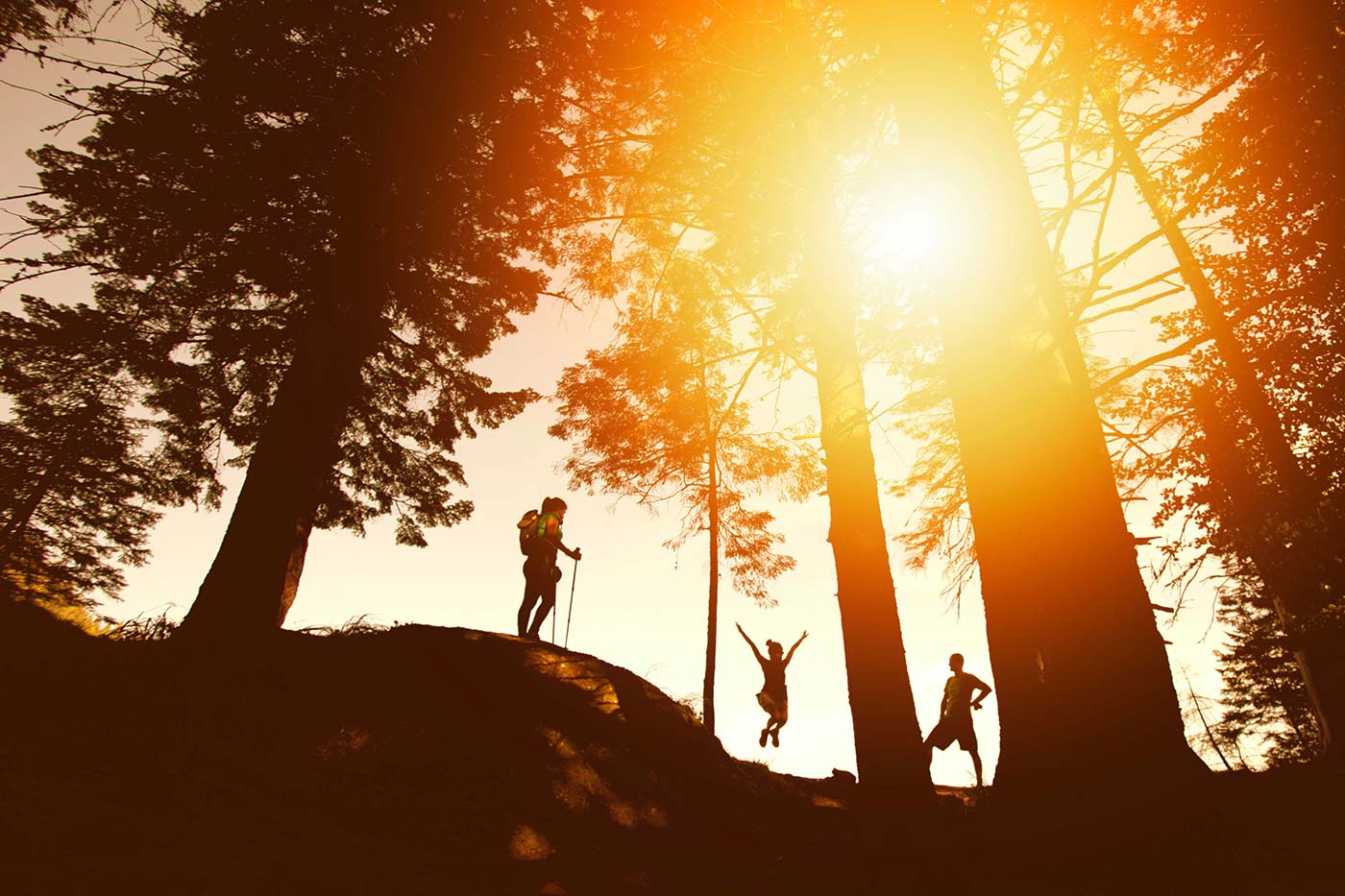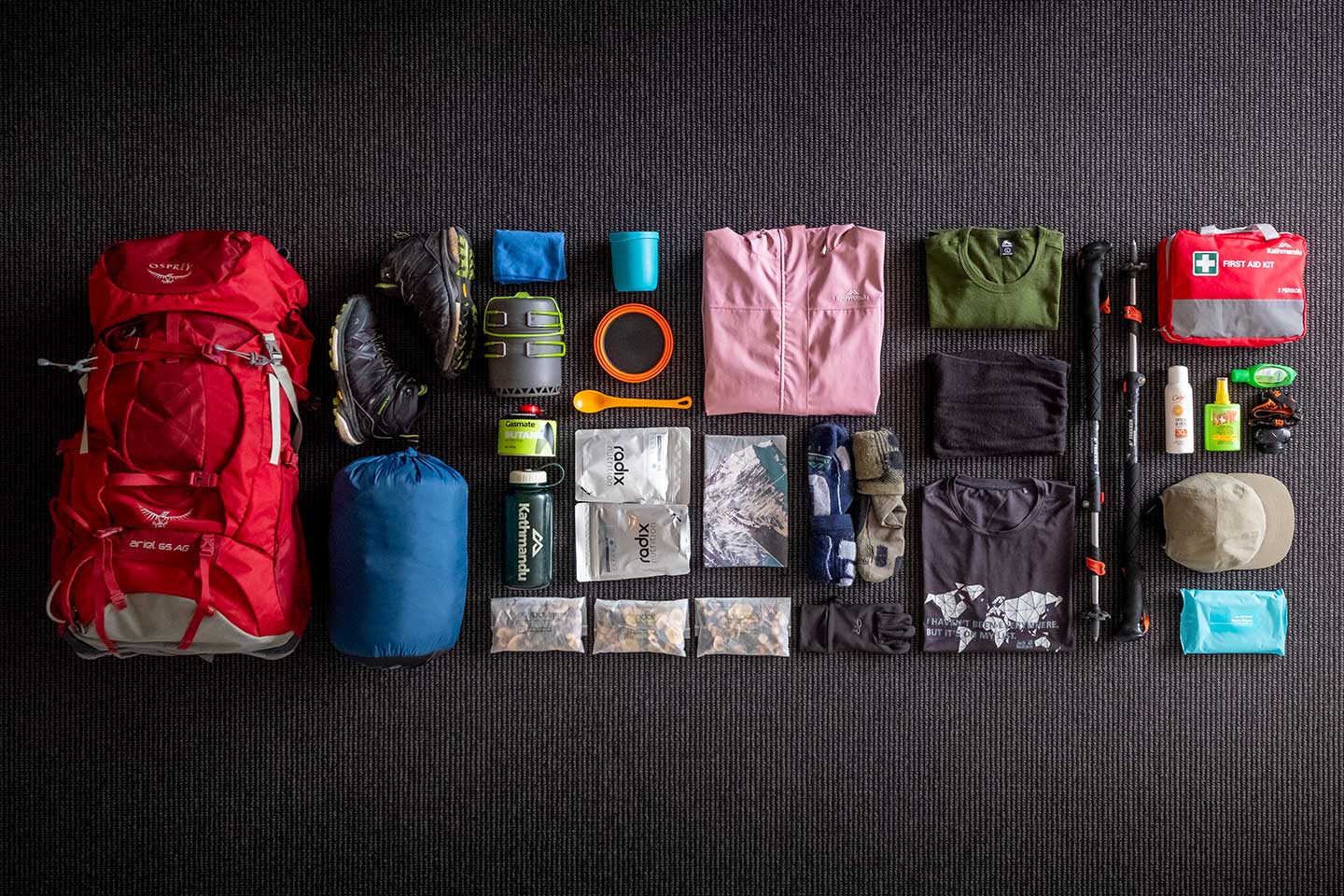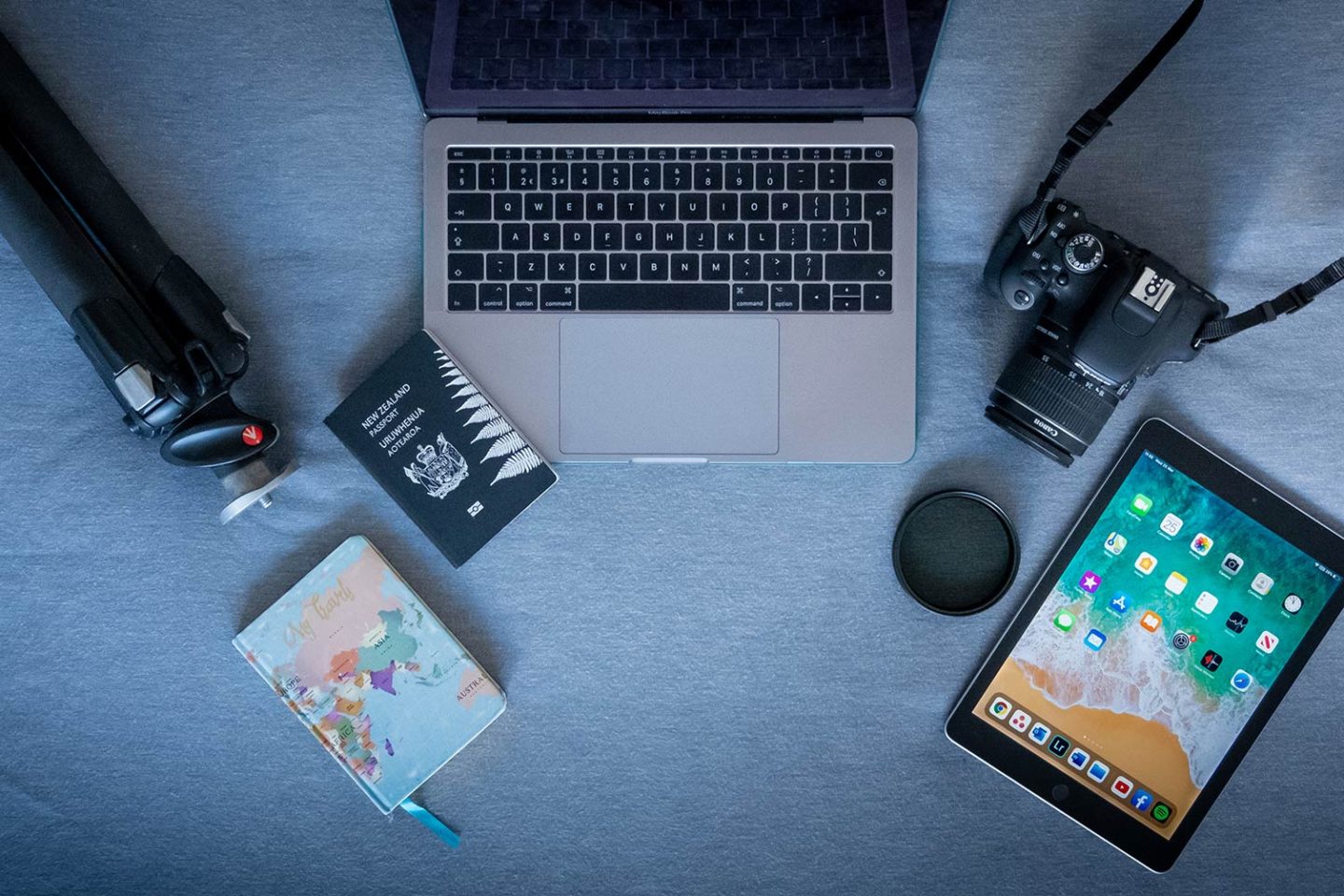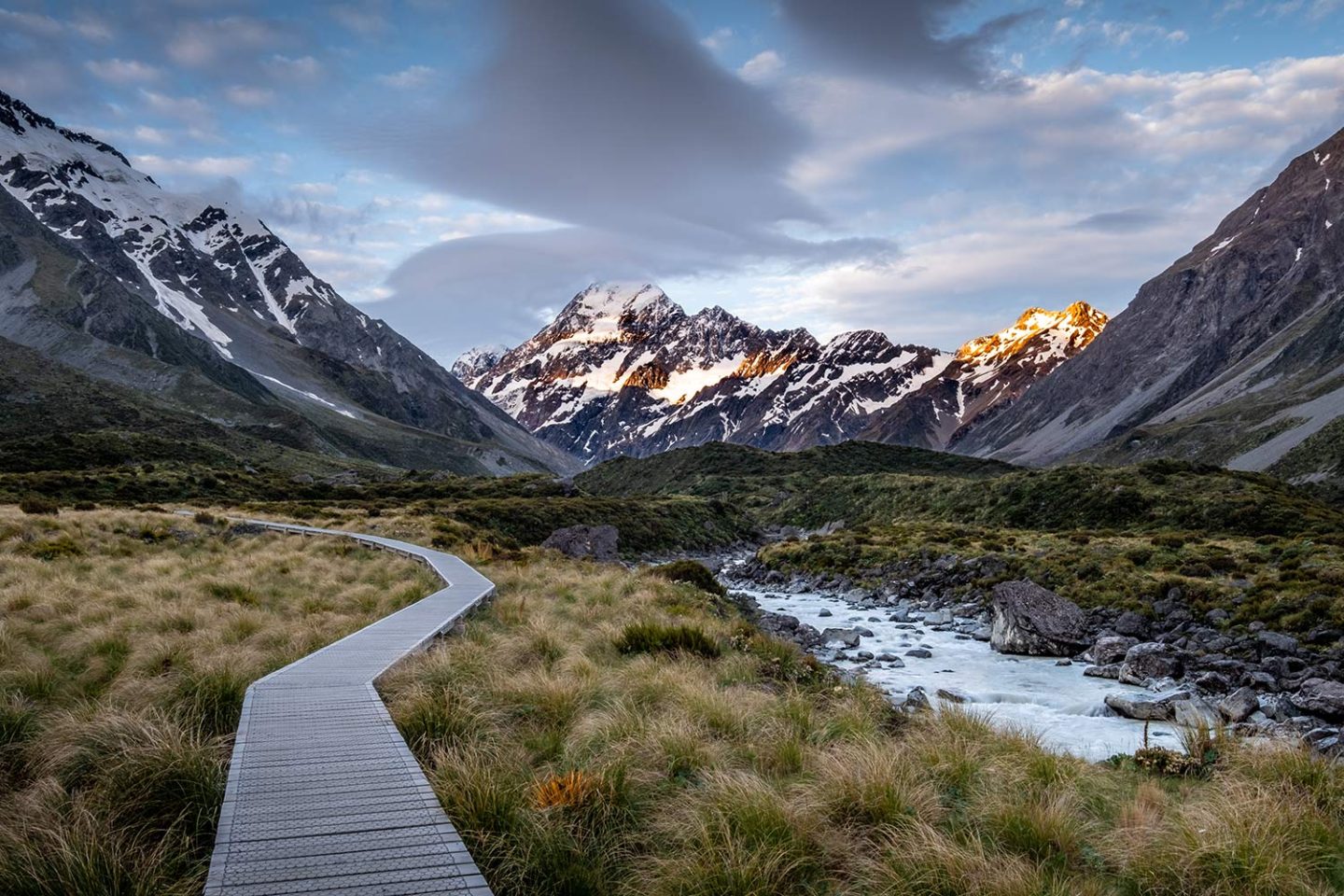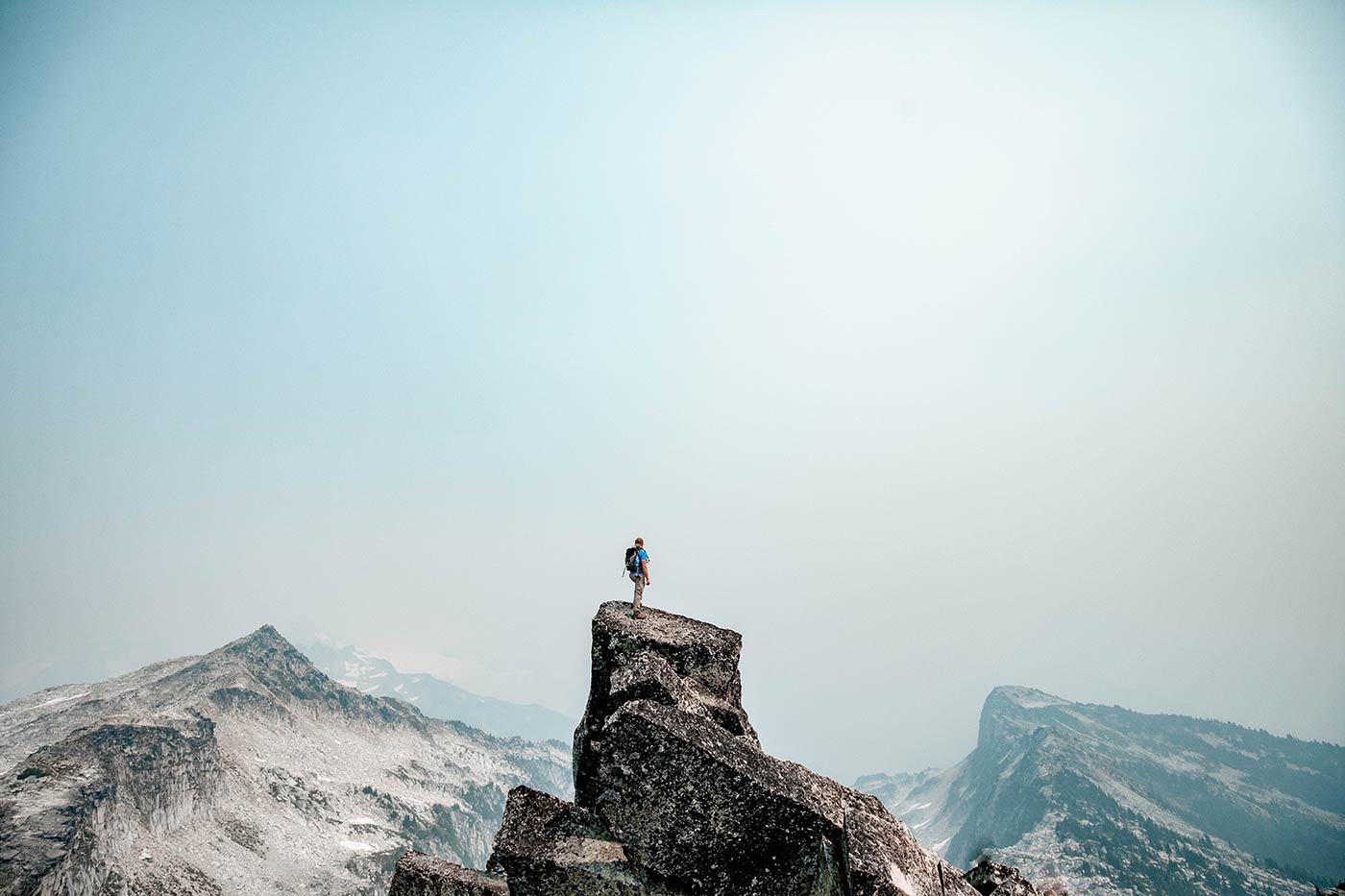This article may contain affiliate/compensated links. For full information, please see our disclaimer here.
Life on the trail is pretty simple, walk, eat, sleep and enjoy! Life surely can’t get any more straightforward? When I first started backpacking I instantly fell in love with it, however I must admit when it came to choosing what food to take, I really struggled. It took me a few trips to figure it all out but I got there eventually. If you’re struggling like I was, don’t worry as in this article I will be outlining my best advice to those seeking vegan backpacking food ideas.
I have been vegan for over 2 years now and although I have found it to be a great diet and lifestyle for myself, I understand that it is not for everyone. If you do follow a vegan diet though you’re in luck as nowadays vegan backpacking food options are plentiful.
Just a quick disclaimer before I start, the information in this article is mostly focused on the vegan backpacking food products I think are the best. If you’re looking for backpacking recipes then this isn’t for you. However, if you want to discover some really tasty vegan backpacking meals then you’ll love this.
- Things to Consider When Choosing Vegan Backpacking Food
- Lots of Calories
- Quick Cooking Time
- Vegan Breakfasts
- Vegan Snacks
- Vegan Lunches
- Vegan Dinners
- The Best Freeze Dried and Dehydrated Vegan Meals
- Pros and Cons of Freeze Dried and Dehydrated Meals
- Dehydrate Your Own Vegan Backpacking Food
- Condiments and Extra Items
- The Backpackers Kitchen All the Items You Need
Things to Consider When Choosing Vegan Backpacking Food
When it comes to choosing your vegan backpacking food there are a few important things to consider. You have to be smart with your decisions and choose your options carefully. Below are some characteristics you’ll want to look out for in your backpacking food.
Long Shelf Life
Firstly, you will want to make sure the food you take along with you in your pack will last the duration of your trip. This means you will generally want to stay clear from items that need to be refrigerated and items that are perishable. This doesn’t mean these items are completely off limits, you can make your decisions based upon the duration of your trip.
If your backpacking trip is only for one night, taking along fresh vegetables and some perishable items is more feasible. However, if your trip is going to last more than three days, you will certainly have to keep in mind the shelf life of the food you will be taking along with you. The absolute worst thing that could happen is your food starting to go bad before you get the chance to eat it.
Full of Nutrition
I’m not sure about everyone else but whenever I neglect my diet I can really feel the negative results of this in my body, I feel sluggish and lack my normal energy levels. The last thing you want to happen when you have an entire day of walking is to feel like you have no energy. It’s worth keeping this in mind when choosing what types of food to take along with you.
You want items that are going to keep your body moving the entire trip. Try to pack food that gives you a good mix of carbohydrates, protein, fats, and fiber. You will also want something to replenish the electrolytes you’ll lose from sweat. I usually take little packets of electrolyte mix to add to water, however eating foods with salt will also help as well.
Want to learn more? Check out this great video on Youtube that comprehensively explains performance nutrition for backpacking. Learn the science-backed optimal trail fuel formula.

Lightweight
Weight is often something that gets overlooked by newbie hikers and backpackers. It’s amazing how quickly the weight can stack up when you start adding food to your pack. You’ll want to try keep your pack as light as possible otherwise your trip could be a lot less enjoyable than you expected. Items such as fresh vegetables sound like a great idea but you’ll soon find these add lots of weight to your pack, so make sure you keep that in mind.
Lots of Calories
When backpacking you will be using a lot more energy than you would usually be using in your normal daily life. It’s important that you consume a sufficient amount of calories, this will likely be a lot more than you would normally consume. The amount of calories you need to consume will depend on the difficulty of your trip and the build of the person. About 3000 calories per day for women and 4000 calories per day for men is a good guideline to follow for backpacking trips.
Quick Cooking Time
The last characteristic you should look for in vegan backpacking foods are items that can be cooked in a short amount of time. After a long day of walking the last thing you’ll want to be doing is spending your entire evening cooking, unless you love cooking of course. Long cooking times will not only take up valuable time but will also use up valuable fuel in your gas canister. The more time you spend cooking, the more fuel you will need and the heavier your pack will be.
Vegan Breakfasts
I’ve never enjoyed eating breakfast but I think it’s important to have a good breakfast when you’re on trail, especially on the more taxing days. I find that a simple, energy filled breakfast is the best way to go. My go to breakfast is oatmeal, also known as porridge or simply oats in countries outside of the USA.

If you’re like me and find it hard to stomach breakfast early in the morning, there are a few things you can do to make the experience a little more enjoyable. Your first option is to make your own oatmeal and add in some of your own ingredients. I find that if I add in some dried or fresh fruit and some chocolate chips, breakfast becomes a lot more pleasurable. The second option you have is to buy an oatmeal packet from a company such as Trailtopia or Backpacker’s Pantry. These companies have a selection of different flavoured oatmeals to choose from, check out some of the best ones below:
- Trailtopia Raspberry Chocolate Oatmeal
- Radix Nutrition Plant-Based Mixed Berry Breakfast
- Backpacker’s Pantry Organic Blueberry Walnut Oatmeal
If you don’t like the sound of oatmeal, maybe give vegan pancakes or even tofu scramble a whirl. I’ve never attempted either of these but have seen other fellow backpackers making them on the trail.
Vegan Snacks
Having a good selection of snacks can be super useful especially during those times when you need a quick little boost of energy. Below are some snack ideas that I regularly take along on my backpacking trips:
- Homemade trail mix with mixed nuts, dried banana chips, raisins and chocolate chips
- Dried mango
- Clif bars (chocolate chip and white chocolate macadamia nut flavors are so good!)
- ProBar protein bars (peanut butter chocolate are amazing)
- Energy balls/bliss balls
- Homemade flapjacks
- Cookies
- Homemade banana bread
Both Clif Bars and ProBars are my favorite vegan snacks, check them out!
Vegan Lunches
I have found in my experience that it is a good idea to keep lunch as light as possible. In the past I have made the mistake of over indulging, which makes the rest of the walk to camp that little bit harder. Wraps or crackers seem to be a lunch favorite among the majority of backpackers. Both last well on trips and are very versatile, simply add your favorite fillings and toppings. Below are my go to fillings and toppings:
- Peanut butter and banana (dried or fresh)
- Pre made couscous and sun-dried tomato strips
- Jam
- Hummus
- Vegan cheese
- Vegan chorizo
Sometimes a wrap or some crackers just isn’t enough. I always make sure to take plenty of extra snacks such as nut bars, protein bars, energy balls, dried mango or even some trail mix.
Vegan Dinners
There is no shortage of vegan backpacking food choices when it comes to dinner, which is great because it’s normally the most satisfying meal on trail. If you’re anything like me you’ll love freeze dried and dehydrated meals made by companies such as Good To-Go, Backpacker’s Pantry and Radix Nutrition. These types of meals are perfect for backpacking as they are lightweight, extremely easy to make and will leave you with little to no clear up. The only downside of these meals is they are generally quite expensive, so if you go backpacking regularly the costs can mount up.
If you want to save some money you can always make your own meals on the trail. My personal favorite meal is a Japanese style curry made with Israeli couscous, textured vegetable protein and a curry cube. The recipe is from Elina Osbourne who is a thru hiker and content creator, you can learn how to make the recipe yourself over on her Youtube channel.

The Best Freeze Dried and Dehydrated Vegan Meals
Although freeze dried and dehydrated meals tend to be expensive, I love the convenience they provide. Simply boil some water, add the water to the packet and then wait until your food is rehydrated, it couldn’t be any simpler. However, not all dehydrated and freeze dried meals are created equally, some are packed full of flavor while others seriously lack it. There is a great amount of choice when it comes to vegan dehydrated and freeze dried meals so you may wonder which ones are worth buying. Check out some of the meals below, these are all really enjoyable.
For those living in New Zealand, Australia, Europe, or the United Kingdom check out Radix Nutrition, they have an unbelievably tasty range of plant-based freeze-dried meals.
- Radix Nutrition Plant-Based Mexican Chilli with Avocado
- Radix Nutrition Plant-Based Turkish Style Falafel
- Radix Nutrition Plant-Based Indian Style Chickpea Curry
Get 5% Off Radix Nutrition
Add discount code “ThePhotoPassport” at checkout for 5% off your Radix Nutrition order!
Pros and Cons of Freeze Dried and Dehydrated Meals
As I have already mentioned I am a big fan of freeze-dried and dehydrated meals but just like anything in this world they are not perfect. Check out some of the pros and cons below:
Pros
- Very convenient
- Takes very limited effort to make
- Limited clean up as you won’t have any dishes to clean
- Allows you to take a varied selection of different meal options
Cons
- Expensive
- Creates a lot of waste that will end up in landfill
You can find out what works best for you but I usually like to take a mix of freeze-dried meals and also make some of my own DIY style meals.
Dehydrate Your Own Vegan Backpacking Food
If you like the sound of dehydrated meals but don’t want to pay for the luxury there is another way, you can simply dehydrate your own meals at home. If you are backpacking on a regular basis then dehydrating your own food makes a lot of sense. You have the initial cost of purchasing a dehydrator however, the savings you will make as a result of not buying dehydrated meals will be great. Fortunately nowadays you can find a good dehydrator for under $200, which if you put it to good use is an absolute bargain.
By dehydrating your own vegan backpacking food you will not only make huge savings but you’ll also have the complete freedom to make whatever you like. It will allow you to take your favorite meals from home onto the trail.
If you like the sound of dehydrating your own vegan backpacking food you might be wondering which dehydrator you should buy. This premium stainless steel dehydrator is a great option for those looking to join the world of dehydrating. Click the link below to have a closer look.

If you want to learn more about how to dehydrate your very own vegan backpacking food check out this great article, it’s packed full of information. You’ll learn good practices for dehydrating your food, how to properly store your food once it’s been dehydrated, and how to rehydrate your food once you reach camp.
Condiments and Extra Items
It’s also a good idea to take a few extra items to help your vegan backpacking food come to life on the trail. You can take as much or as little as you’d like, items such as olive oil, salt, and pepper are very useful to have with you. You may also want to take some nutritional yeast along with you to add some flavor to certain foods. Another idea is to take some extra textured vegetable protein with you to add an extra bit of protein to any meals that are lacking. Once you have been backpacking a few times you’ll soon figure out what works and what doesn’t.
The Backpackers Kitchen All the Items You Need
The last piece of the puzzle is your cooking equipment. If you’re going to be eating mostly freeze-dried or dehydrated meals then you’ll just need a stove system and spoon. The Jetboil Flash 2.0 is a great option with its lightning fast boil time of 500ml in 100 seconds. If you are planning on cooking your own meals on trail then the MSR Pocket Rocket 2 is a great lightweight option. With the addition of a Toaks Titanium Pot and a Sea to Summit Alphalight long spoon you’ll be ready to go. Check out some of the great quality cooking gear listed below:
Want some great hiking gear recommendations? Check out the article below:

